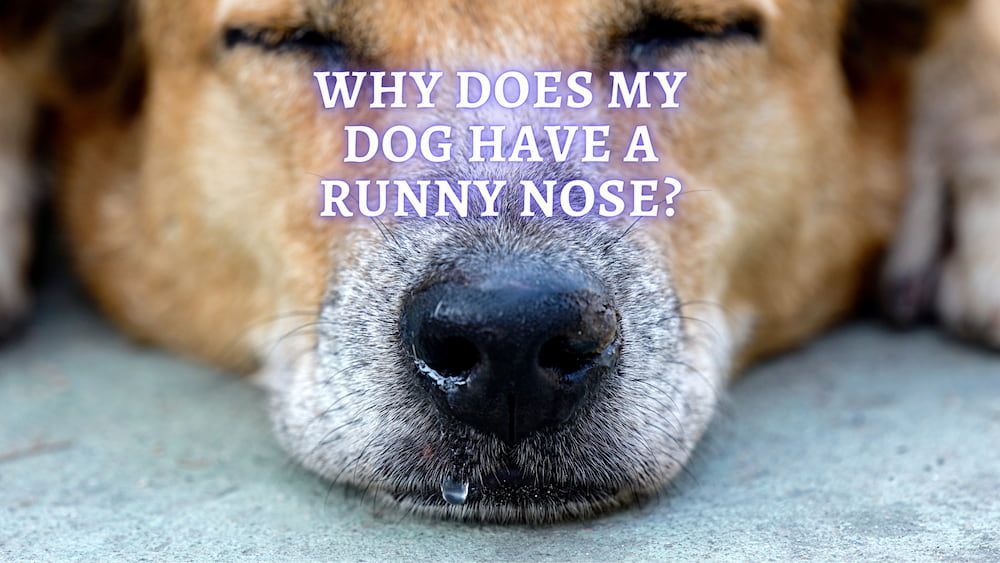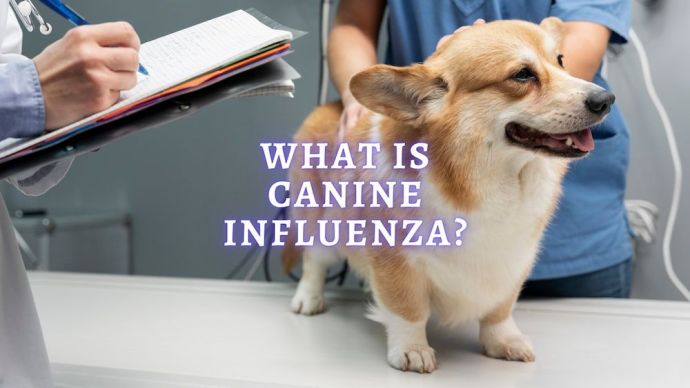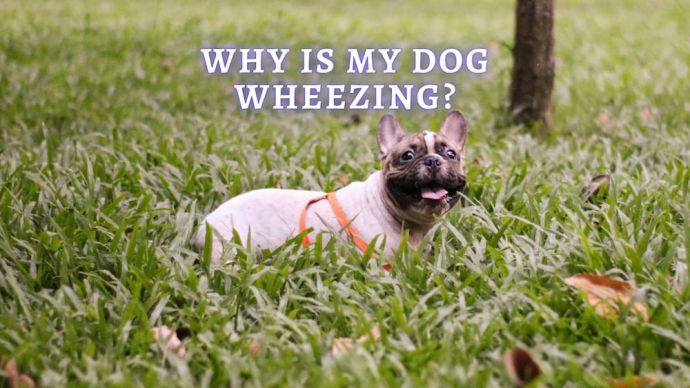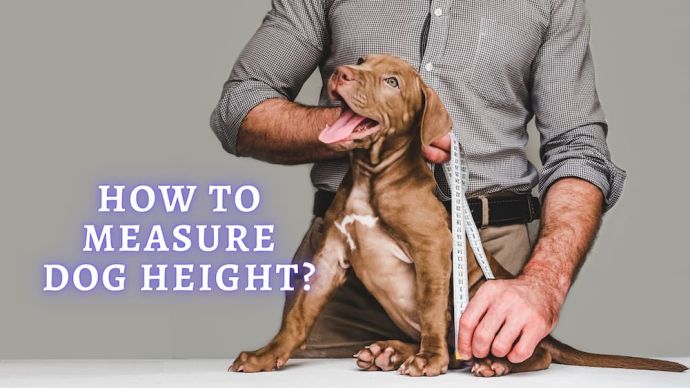Dog Runny Nose: Causes, Tips and Treatment (Vet Approved)
Written by:
Author: Vicki Smirnova
Vicki Smirnova is a professional writer and editor who adores animals and helps readers get along well with their pets. She has been working in digital media for more than 5 years and has great experience writing content about lifestyle, including pets. Vicki specializes in dog health and nutrition, cat feeding, dog training. She is an aquarium lover and is passionate to write about fish care at home. Also, Vicki headed several websites and worked as a news editor.
View all 245 articlesLearn about our editorial process and veterinary review board.
Reviewed by:
Veterinary review
by Dr. Linda Simon
Dr. Linda Simon is a veterinary surgeon working with seven years of experience. She is a fellow of the British Veterinary Association and specializing in animal medicine. Also, she has been the Woman magazine resident vet for the past two years and writes a regular column for them, focusing on pets and their health.
View all 30 articlesLearn about our veterinary review board
Viewed: 85
Updated on: 08/10/2022
Just like people, dogs can suffer from runny noses for various reasons. A dog with a runny nose can suffer from allergies, a cold, a particular infection, or foreign objects in the nasal passage. While a runny dose for people might not feel that uncomfortable, dogs have forty times more smell receptors. Sometimes, when your pup meets you when you’re back home, a runny nose is a natural reaction to happiness. While a runny nose might as well be a normal reaction, if it persists for long periods and is accompanied by other symptoms, it’s the time to ring the bell.
Common causes of runny nose in dogs
As mentioned before, you shouldn’t worry about the runny nose too much if it happens occasionally or when triggered by particular occasions. Yet, it’s crucial to seek treatment immediately if you observe other symptoms, such as lingering, discharge, blood, and bad breath. It’s no surprise that identifying the underlying cause of your dog’s runny nose is critical in finding proper relief. Let’s review the most common causes of a runny nose in dogs.
Allergies
One of the most common causes of a runny nose is allergies. Like people, some dogs are allergic to certain environmental substances. These substances can include pollen, mold, dust, or certain foods. If your pet has allergies, you might notice that their symptoms get worse at certain times of the year or when they’re exposed to certain substances. Before confirming that allergy is a primary cause of runny nose, watch out for symptoms, such as itching, ear infection, digestive issues, nasal discharge, and excessive licking.
READ MORE: Why is My Dog Sneezing?
Cold or flu
A cold or the flu is another possible cause of a runny nose in dogs. Symptoms of a cold or the flu in dogs can include a runny nose, sneezing, coughing, and fever. If your dog has a cold or the flu, you might also notice that they’re tired and not interested in food.
Colds and the flu are usually relatively mild and will go away on their own within a week or two. However, if your dog seems to be struggling, it’s always a good idea to take them to the vet for an exam.
RELATED: My Dog Keeps Sneezing
Infection
In some cases, a runny nose in dogs can be a sign of an infection, such as kennel cough or pneumonia. Kennel cough is a highly contagious respiratory infection that dogs can catch from other dogs. It’s similar to a cold in humans and usually goes away on its own within a few weeks.
Pneumonia is a serious lung infection caused by bacteria, viruses, or fungi. Symptoms of pneumonia can include a runny nose, coughing, difficulty breathing, and fever. It’s a severe condition and can be life-threatening, so it’s essential to take your dog to the vet if they seem to be suffering from it.
Other causes
There are a few other potential causes of a runny nose in dogs, although they’re less common. These causes can include:
- Nasal tumors: In rare cases, a runny nose in dogs can signify a nasal tumor. Nasal tumors are growths in the nasal cavity that can be benign (non-cancerous) or malignant (cancerous). If your dog has a nasal tumor, you might also notice that they’re having difficulty breathing.
- Foreign bodies: If your dog has a foreign body stuck in their nose, it could cause a runny nose. Foreign bodies can include grass seeds, pieces of food, or small toys. If you think your pup may have a foreign body stuck in their nose, it’s essential to take them to the vet for an exam.
Diagnosis
If your dog’s runny nose concerns you a lot, you should schedule an appointment with your vet as soon as reasonably possible. If a dog exhibits no other symptom except for nasal discharge, which is occasional, contacting an online vet is more reasonable. With a subscription, you get 24/7 access to a certified veterinarian who can check your dog’s nose using an online video call. Using this service, you can forget about the long rides to the nearest vet and check in with a specialist on your dog’s health, behavior, nutrition, and more.
However, if you’re confident that your dog’s nose is running and they exhibit worrying symptoms, such as fever, excessive licking, or dizziness, scheduling an ASAP veterinarian appointment is a must. A veterinarian will review your dog’s medical history and might schedule a range of tests to determine an accurate diagnosis. Once a veterinarian diagnoses the exact cause of a runny nose, appropriate treatment can be started.
Treatment
There are a few different ways that you can treat your dog’s runny nose, depending on the underlying cause. If allergies cause your dog’s runny nose, you can try giving them a hypoallergenic diet or some antihistamines. If a bacterial infection causes it, your dog must get through the antibiotics course. Suppose a veterinarian found an object stuck in a nasal passage; it must be removed in a clinical environment to minimize harm. The veterinarian will choose the necessary treatment depending on the underlying cause of a runny nose.
Conclusion
No one will doubt that smell is a central sense for dogs, and a runny nose may significantly impact the quality of life of your pet. Suppose they show no other symptoms except for occasional nasal discharge. In these cases, giving a talk to a vet online is more convenient to discuss what might trigger such a natural reaction.
However, scheduling an appointment with your veterinarian is necessary if your dog shows severe symptoms, such as swelling, fever, excessive licking, or digestive issues. Because a runny nose can be caused by anything from allergies and infections to cold or foreign objects in the nasal passage, finding out the underlying cause is your primary goal in assigning the appropriate treatment. In these cases, you’d benefit from the emergency vet funds service, a pet insurance alternative. With its help, you get up to $3,000 of insurance for critical conditions, such as a virus or nasal tumor, which cause a runny nose.
 Dog Care Can Dogs Eat Sour Cream? Benefits and Risks of Feeding Your Dog Sour Cream
Dog Care Can Dogs Eat Sour Cream? Benefits and Risks of Feeding Your Dog Sour Cream - 5026
- 0
 Dog Veterinary Tips Why is my Dog throwing up: Causes and Preventing (Veterinary Advice)
Dog Veterinary Tips Why is my Dog throwing up: Causes and Preventing (Veterinary Advice) - 21356
- 5
 Dog Care My Dog Keeps Scratching His Mouth: Reasons Why Your Dog Scratching Face
Dog Care My Dog Keeps Scratching His Mouth: Reasons Why Your Dog Scratching Face - 16545
- 1


























